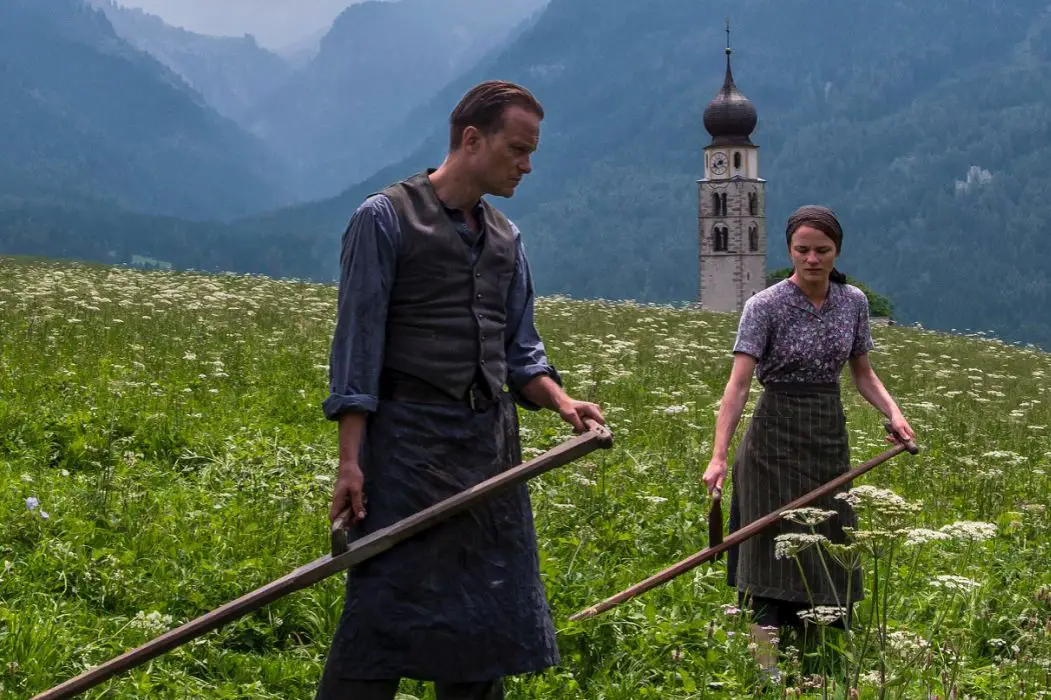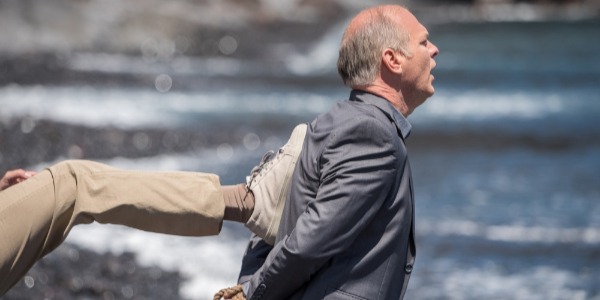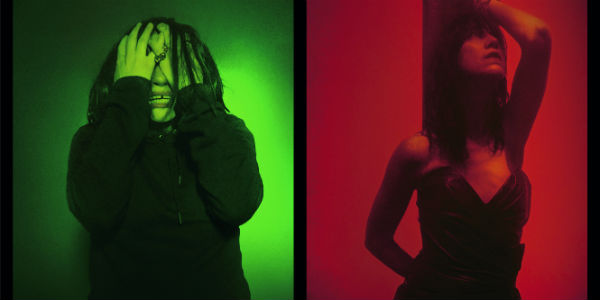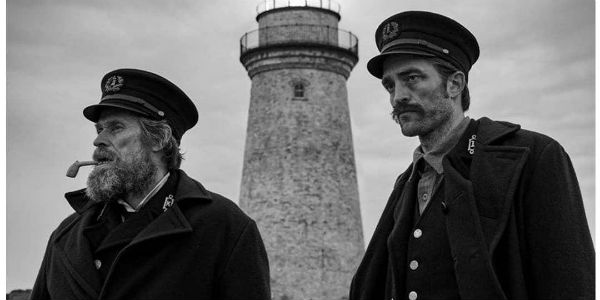Cannes Days 5 & 6: Neon Lights, Strobe Lights And Lighthouse Keepers

Gus is a 3rd year English Lit and Creative Writing…
Gus Edgar-Chan: We’re at the halfway point of our time in Cannes, not that we’d know it—this festival exists in a time vortex, where it takes longer to queue than watch a film and sleep is but a myth. For myself, at least, I’ve been slightly disappointed with the Competition offerings so far (The Dead Don’t Die remains my favourite), and quietly impressed with the sidebar screenings. And joining that list, along with For Sama and Zombi Child (which you can read in our last dispatch), is a film from Robert Eggers (The Witch). Read on for that writeup…
While I’ve been busy with lighthouses, the new Malick, and a midnight screening of the literally unwatchable (but very good) Gaspar Noé film, Alistair Ryder reviews two competition films, one Chinese and one Romanian. Are they any good? Well:
The Wild Goose Lake (Diao Yinan)

Alistair Ryder: If nothing else, The Wild Goose Lake is an exquisite sizzle reel for Diao Yinan’s versatile talents as director. He can produce atmospheric, borderline noir-inflected imagery one minute, and let all hell break loose in bloody action sequences the next. But on the whole, Yinan’s first feature since his Golden Bear winning Black Coal, Thin Ice suffers due to over-complicating simple genre pleasures, transforming a cat and mouse thriller into something altogether convoluted. It’s the best directed film of this year’s competition slate so far – but no amount of exquisitely crafted neon-soaked imagery and slow burning atmospherics can hide the fact this film doesn’t sustain the tension it so desperately needs.
The premise is deceptively complex. Zhou Zenong (Hu Ge), a man who murdered a policeman, is on the run, and his whereabouts have effectively been closed off into a 12 mile stretch of land that constitutes countryside and a seaside town. He’s also on the run from fellow gangsters, who have hired prostitute Liu Aiai (Gwei Lun-Mei) to bring him in, meaning he’s now caught in a wild goose chase, from trigger happy cops looking for vengeance, and the mobsters from which he’s trying to escape.
Quentin Tarantino made an unexpected appearance in the audience of my screening, and there is plenty here that will delight cinema’s biggest fanboy of blood-splattered carnage. From the ironic use of pop songs in the build up to a shootout (who knew Boney M’s Rasputin could be used to mine tension?), to inventive deaths that provide the film’s few moments of levity, the film has plenty of moments designed to get your adrenaline racing – but then these are followed by introspective character moments which bring the film to a dead halt due to the paper thin characterisation. It goes from patience testing to pure excitement at the tip of a hat; dialogue free sequences of wandering round the town are followed minutes later by moments as gleefully insane as a man getting killed by an umbrella (can John Wick do that?).
Within the moment, these moments provide pure exhilaration – but because of the convoluted film around them, faded from my memory pretty quickly. Yinan can clearly master the aesthetics of both noir and the most ridiculous entries in the action genre, but when placed together, make for uneasy bedfellows that act to each other’s detriment.
The Whistlers (Corneliu Poromboiu)

Alistair Ryder: Romanian director Corneliu Poromboiu’s latest film has an ingenious high concept that it’s genuinely baffling to hear nobody has attempted before. A police officer who is under investigation due to collaborating with the mafia has been ordered to visit the Canary Islands, where he will learn an ancient whistling language that the cops won’t be able to decipher on a wiretapped recording. And then you see The Whistlers, and completely understand why this premise has never been utilised before – it’s an archetypal example of the one gag movie, where the quirkiness of the concept is underserved by unimaginative writing, and a stereotypical crime plot to pad the film up to feature length.
It’s not the worst film in this year’s Cannes competition so far (against my fellow Cannes Film Inquirer Gus’ beliefs, that dubious honour would still go to The Dead Don’t Die), but it is the one most lacking in originality. Beyond the pure oddity of the premise, there are no new ideas within The Whistlers; it’s an overly familiar Euro crime drama, that offers very little in the way of intrigue due to the audience’s innate ability to determine which direction the story is heading.
Every year, the Cannes lineup delivers as many films that fade into obscurity as ones that become beloved arthouse favourites; for every Burning, Shoplifters or Cold War, there are films like (to use examples from last year’s main competition slate) Girls of the Sun, or Yomeddine, which are greeted with a shrug and lost in the shuffle of a near-two week onslaught of breathtaking new cinema.
In a year where critical consensus seems to agree that, Almodovar aside, it’s a fairly weak competition slate, it’s telling that The Whistlers fails to even register considering the unmemorable films its up for the Palme D’Or against. No film relying so hard on the originality of its premise should fade from the memory this quickly.
Lux Æterna (Gaspar Noé)

Gus Edgar-Chan: Gaspar Noé is back in Cannes, one year on from his near-unanimously praised Climax, and this time he’s looking to split the critical consensus in twain. He returns with a bewildering, bewitching metafictional film essay that begins with a quote highlighting the euphoria one feels right before an epileptic fit. Treat that as your seizure warning.
This is followed by a conversation between Charlotte Gainsbourg and Béatrice Dalle (playing fictionalised versions of themselves) on the length directors go and the women who have to endure it, the recurring image being that of a woman burned at the stake—a titillating, ‘uber-cool’ motif in Dalle’s mind.
Dalle is directing a kitschy, lurid new film that invokes this image, and Gainsbourg is to be her star. Lux Æterna, in its elongated middle stretch, follows the crew of this film set as they squabble, scheme and eventually descend into delirium.
To mix up the mayhem, Noé employs a split-screen perspective, as if we’re gazing through the view of two separately wandering eyeballs. It’s a neat trick, a slick way to gage cause and reaction, or to contrast on-set panic with backroom chatter.
And, then, with director and producer butting heads and the film’s female cast tied to the stake—a gaudy set where the women are scantily clad, don sunglasses and are backlit by a flaming green screen—the lighting glitches. In come fifteen minutes of strobe lighting and piercing whistles to put the audience through the wringer and end the film.
I had to look away—you probably will too. But Lux Æterna gets the strange compliment of being a nigh-unwatchable film that I’d wholly recommend. The 50-minute runtime doesn’t let Noé’s stylistic onslaught grow laborious, and in his thinly-veiled intentions to cause a mass seizure is some sublime, unforgettable imagery; the experience of actively torturing the audience handily ties together the film’s ruminations on justified actions, pained euphoria, and, strangely, female enlightenment. Oh, the length directors go.
The Lighthouse (Robert Eggers)

Gus Edgar-Chan: In Robert Eggers’ proudly unclassifiable sophomoric effort, two lighthouse keepers (Willem Dafoe and Robert Pattinson) station themselves on a tiny, windswept island for the long haul. Dafoe’s Thomas Wake is the grizzled, irascible veteran of the pair, all scraggly beard, smoking pipe and outlandish sea jargon—at one point he’s aptly described as a parody of himself. Pattinson’s Ephraim Winslow is his disgruntled apprentice, a spindly, sea-worn figure made to attend to the lighthouse’s less glamorous duties—hauling oil, scrubbing floorboards, and lugging pots of piss into the ocean.
Trapped on an island surrounded by spittle, the two bicker, drink, become both friends and enemies, and eventually succumb to madness. You can practically taste the sea salt on your tongue, the wind on your back; the pair are at the mercy of mother nature, and only have each other for company. They flaunt their manliness, beat their manhood, and vie for control of the lighthouse’s shimmering beacon. It’s a thrilling, manic, hallucinogenic regression into our primal instincts.
Eggers boxes these characters in a Movietone aspect ratio and films in black and white. The archaic dialogue, too, is accurate to era; The Lighthouse feels like a film plucked from the past, as if it were visualising a haunting tale told on the high seas. This is not, however, a horror movie in the strictest sense. Sure, there’s the foreboding talk of mermaids, cameras roving through corridors and dream sequences of real menace, but The Lighthouse is multifaceted.
It’s also a psychological thriller in the vein of Persona, an existential drama with shades of The Turin Horse, and is decidedly more funny—fart gags in tow—than Eggers’ debut, The Witch. More than anything, The Lighthouse is an opportunity to pair Pattinson with Dafoe and let them have a go at each other. They take on the sublimely-overwritten maritime lingo with relish, Eggers proving his terrific handle on dialogue isn’t simply limited to 1600s New England. The Lighthouse takes on masculinity, madness and merfolk, and it’s marvelous.
A Hidden Life (Terrence Malick)

Gus Edgar-Chan: Malick returns to narrative form, however thinly-sketched, with A Hidden Life, a film that reaches for grandeur and nearly succeeds. It tells the story of Franz Jägerstätter (August Diehl), an Austrian conscientious objector who is executed after refusing to fight for the Nazis. We begin with his home life and loving relationship with wife Franziska (Valerie Pachner)—the usual Malick-isms of play-fighting in the flowers, and panoramic vistas are present, though their mountainside village of Radegund is staggeringly beautiful—their very own Garden of Eden.
It makes sense, then, for Franz’s religious beliefs to be the reason behind his defiance of Hitler’s regime. Taken from that paradise and made to lumber around in a prison courtyard before trial, his journey to self-annihilation is paved with crooning love letters and existential musings on the nature of war, life and love.
I’ve often found Terrence Malick’s mode of storytelling overblown, and the same applies to A Hidden Life, where pseudo-profound lines on hay and cows are treated with the utmost sincerity. He also, unavoidably, rehashes many of the philosophical musings on war’s lack of rhyme or reason with The Thin Red Line. And the drifting camera that staggers to invasive close-ups and occasionally views the world from the perspective of Franz reminds us of the artifice of this endeavour, distancing us from the intimacy the director so desperately reaches for.
Yet there are moments of poetic beauty and insight; an alternate version of Scorsese’s Silence that prioritises thought over action and the world’s innate wonder over its encroaching ugliness. The final stretch, in particular, reaches an emotional zenith that reverberates across the two-and-a-half hours beforehand. Malick’s film is imperfect, and doesn’t plunder its premise’s existential depths as much as you’d expect given the runtime. But the imagery is often fantastic, and the instances of tranquility in Radegund sobering and sorrowful—a reminder of the paradise we leave behind when we venture out to war.
Does content like this matter to you?
Become a Member and support film journalism. Unlock access to all of Film Inquiry`s great articles. Join a community of like-minded readers who are passionate about cinema - get access to our private members Network, give back to independent filmmakers, and more.
Gus is a 3rd year English Lit and Creative Writing student who loves everything film and still doesn't understand why he didn't study that instead. He is the co-editor for Venue, the arts supplement of his Uni's newspaper, and has written for Little White Lies, ScreenRant, Dog and Wolf, BritFlicks and Outline Norwich.













